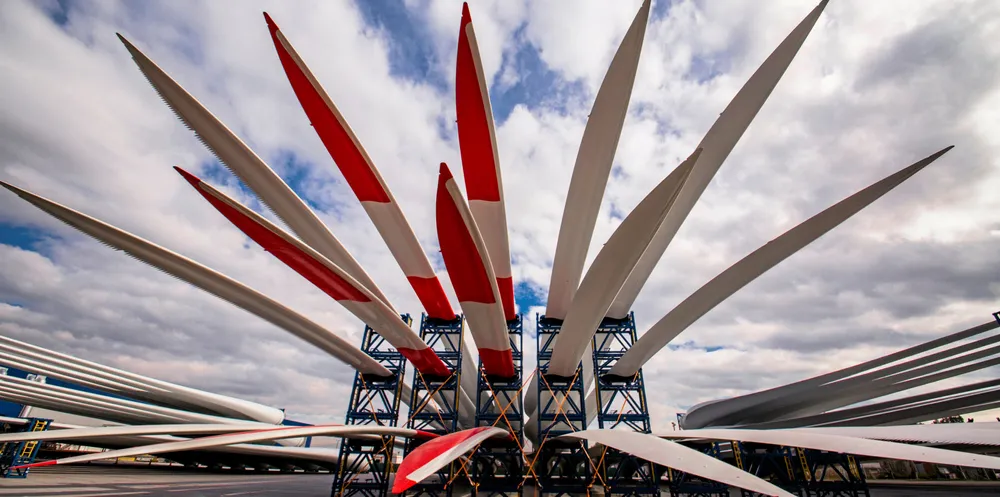US blade maker TPI hit by Q3 loss against 'challenging macroeconomic backdrop'
Independent manufacturer blames near-term 'headwinds' for $30.7m net loss versus a $42.4m profit a year ago, as it opens new fab line in China and extends factory in Turkey

Independent US wind turbine blade maker TPI Composites expects supply chain pressures that have led to rising input and freight costs and limited availability of certain raw materials to persist through most of 2022, its CEO has disclosed.
<b>Focus your mind: get the insight you need with the Recharge Agenda</b>
The global energy transition is gathering momentum – and the accompanying news-stream becoming an information deluge. Separate the green giants from the greenwash and the hard facts from the click-bait headlines with Recharge Agenda, our curation of the market-making events of the week, distilled down into one quick-read newsletter. Sign up here for free
“We are diligently navigating through a challenging macroeconomic backdrop that is adversely impacting the wind industry on a global scale,” said Bill Siwek, as the Arizona-based company blamed these and other near-term “headwinds” for a third quarter $30.7m net loss versus a $42.4m profit a year earlier.
TPI, like its turbine OEM customers, has been grappling with Covid-driven supply chain disruptions over the last 20 months made worse when the global economy led by China and the US rebounded this year as vaccines became widely available in Asia, Europe and North America.
The US, a key market for TPI, is experiencing a surge in consumer demand with the world’s largest economy fully reopening, fuelled by a spike in disposable income because of greater savings during the pandemic and several trillion dollars in federal stimulus.
This has resulted in a crush of imports at overwhelmed US ports made worse by a nationwide shortage of railroad locomotive and truck drivers to get goods to their final destinations. More than 70 ships are anchored along the east and west coasts waiting to unload cargo amid weeks of delays.
With supply and demand out of whack, prices have surged for raw materials, intermediate goods, and manufactured components. Siwek praised efforts by his team to mitigate supply chain pressures.
Still, rising inflation is weighing on both corporate profits and worker wages, making cost productivity even more urgent across all industries.
TPI in the quarter experienced production delays at two manufacturing facilities in Mexico, both near the US border. The one in Matamoros was recently taken over from Nordex and the other in Ciudad de Juarez is in the startup phase of “producing an innovative new blade model for one of our customers,” said Siwek, without providing details.
The bill, as now written in the House of Representatives, includes a 10-year extension of the production tax credit, the main federal incentive for onshore wind which TPI serves. “We believe that final passage of this bill will help bring clarity to our future demand outlook,” said Siwek.
Elsewhere, TPI last quarter added new production lines in China for Vestas and extended a couple of lines in Turkey with Nordex.
The company also announced that it will issue and sell $400m of Series A preferred stock to investment funds managed Oaktree Capital Management, an investment management firm based in Los Angeles.
“Oaktree is a seasoned investor across the energy value chain and this investment is a strong endorsement of our strategy and long-term growth prospects,” said Siwek.
TPI said it would use the net proceeds from the sale to pay off all outstanding indebtedness under its senior credit facility and the balance for general corporate purposes.
(Copyright)